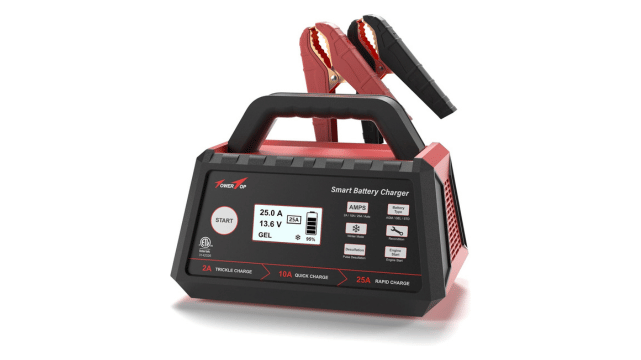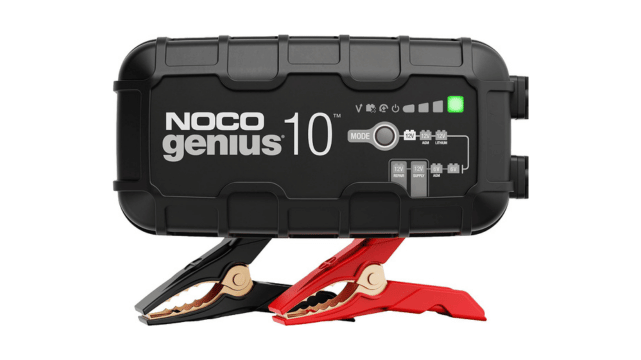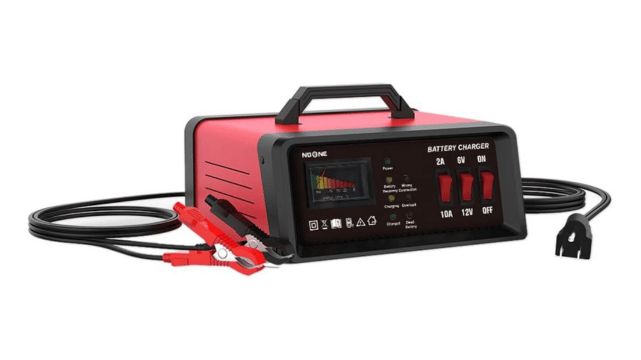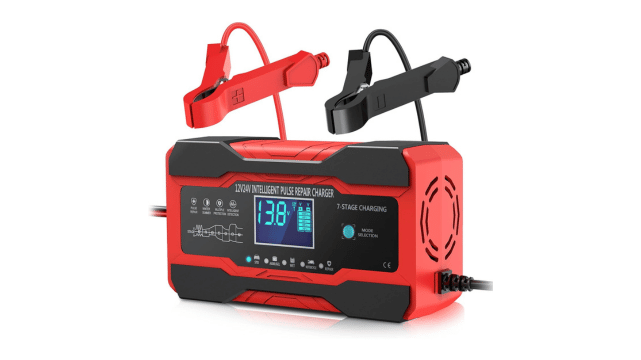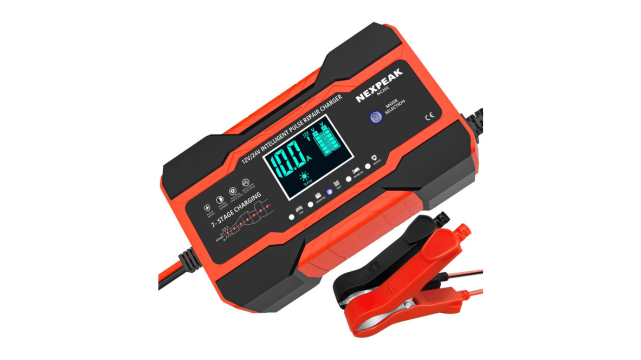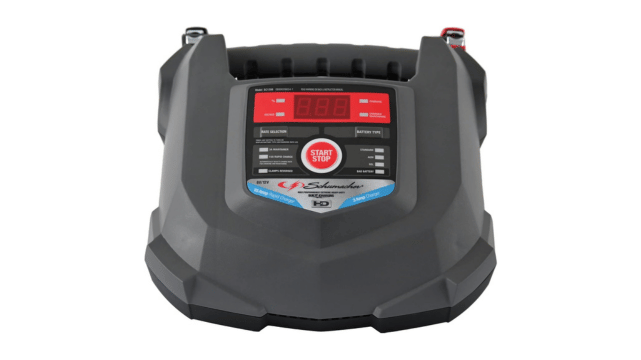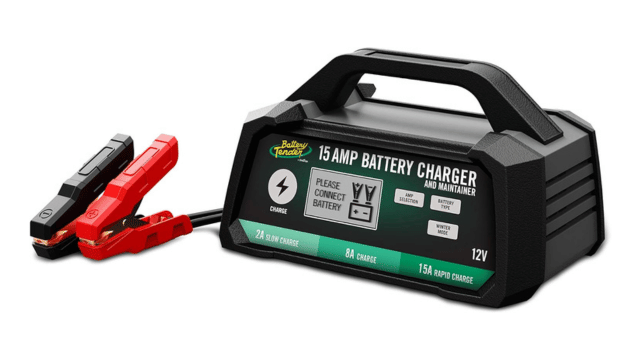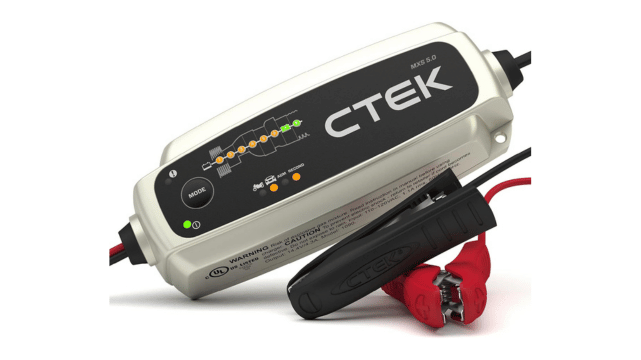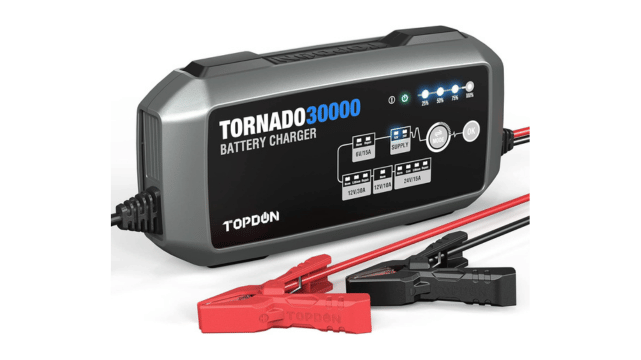Keep your vehicle powered and ready with the best car battery charger. Designed for fast, efficient charging, this essential tool ensures your car’s battery stays in peak condition whether you’re on the road or parked for long periods. Its intelligent charging system adapts to various battery types, providing safe, automatic maintenance and quick boosts when needed. Compact and easy to use, it’s perfect for home garages or emergency roadside assistance. Say goodbye to dead batteries and enjoy peace of mind knowing you’re always prepared for a reliable start.
Best Car Battery Chargers Buying Guide
A car battery charger is an essential tool for any vehicle owner, providing a reliable means to restore power to a depleted battery or maintain its charge during periods of inactivity. Whether you’re a daily commuter, a weekend warrior, or someone who stores vehicles for extended periods, having a quality car battery charger can save you from unexpected breakdowns and extend the life of your vehicle’s battery. This comprehensive buying guide will walk you through the crucial factors to consider when selecting a car battery charger, ensuring you make an informed decision that meets your specific needs, vehicle requirements, and usage patterns.
Understanding Car Battery Chargers
Car battery chargers come in various types and sizes, each designed to address different charging needs and scenarios. At their core, these devices convert AC power from a wall outlet into DC power that can be safely delivered to your car’s battery. Modern chargers range from simple trickle chargers that slowly replenish battery power over time to sophisticated smart chargers that can diagnose battery issues, adjust charging rates, and even recondition batteries. Understanding the key components and features of car battery chargers will help you select a model that best suits your vehicle type, charging frequency, and overall maintenance strategy.
Key Factors to Consider
Charging Capacity and Amperage
One of the most critical factors to consider when choosing a car battery charger is its charging capacity, typically measured in amperes (amps). The amperage determines how quickly the charger can replenish your battery’s power. For everyday maintenance and slow charging, a 2-4 amp charger is often sufficient. These lower amperage chargers, sometimes called trickle chargers, are ideal for maintaining batteries in vehicles that are used infrequently or stored for long periods. They provide a gentle charge that prevents battery degradation without the risk of overcharging. For faster charging or for larger batteries found in trucks or RVs, you might want to consider chargers with 10-20 amp capacities. These higher amperage chargers can quickly bring a dead battery back to life, which is particularly useful in emergency situations. Some advanced chargers offer variable amperage settings, allowing you to adjust the charging rate based on your specific needs or battery condition. When evaluating amperage, consider your typical usage patterns. If you frequently need to charge a completely dead battery, a higher amperage charger might be more suitable. However, if your primary goal is maintenance charging, a lower amperage unit will suffice and may be gentler on your battery in the long run.
Battery Types and Compatibility
Modern vehicles use a variety of battery types, each with its own charging requirements. The most common types are lead-acid batteries, which include traditional flooded (wet cell) batteries and maintenance-free sealed batteries like AGM (Absorbent Glass Mat) and gel cell batteries. More recently, some vehicles have started using lithium-ion batteries. It’s crucial to choose a charger that is compatible with your specific battery type. Many modern chargers are designed to work with multiple battery types and can automatically detect and adjust their charging parameters accordingly. This versatility can be particularly useful if you own multiple vehicles with different battery types or if you anticipate changing vehicles in the future. Look for chargers that explicitly state their compatibility with your battery type. Some advanced chargers even offer specific charging modes optimized for different battery chemistries, ensuring the most efficient and safe charging process. Additionally, consider the voltage requirements of your vehicle’s electrical system. While most passenger vehicles use 12-volt batteries, some larger vehicles or specialized equipment may use 6-volt or 24-volt systems. Ensure that the charger you choose can accommodate the voltage of your vehicle’s battery.
Smart Charging Technology
The advent of smart charging technology has significantly improved the safety, efficiency, and effectiveness of car battery chargers. Smart chargers, also known as automatic or microprocessor-controlled chargers, use sophisticated algorithms to monitor the battery’s condition and adjust the charging process accordingly. These chargers typically offer multi-stage charging, which includes bulk charging for rapid power delivery, absorption charging to top off the battery, and float or maintenance charging to keep the battery at optimal levels without overcharging. Look for chargers with features like automatic voltage detection, which can identify whether you’re connecting to a 6V or 12V battery and adjust settings accordingly. Some advanced smart chargers offer desulfation modes that can help revive batteries suffering from sulfate buildup, a common cause of battery failure. Temperature compensation is another valuable feature, as it adjusts the charging parameters based on ambient temperature to prevent overcharging in hot conditions or undercharging in cold weather. Many smart chargers also include safety features such as reverse polarity protection, spark-proof connections, and overcharge prevention. These features not only protect your battery but also enhance user safety during the charging process.
Portability and Design
The portability and overall design of a car battery charger can significantly impact its convenience and usability. Consider where and how you’ll primarily use the charger. If you plan to keep it in a fixed location in your garage, a larger, more powerful unit might be suitable. However, if you need to move the charger between vehicles or take it on the road, look for compact, lightweight designs with convenient carrying handles. Some portable chargers come with built-in cables and clamps, which can be handy for quick setups but may limit flexibility in tight engine compartments. Alternatively, chargers with detachable cables allow for easier storage and the option to replace cables if they become damaged. Pay attention to the length of the charging cables; longer cables provide more flexibility in positioning the charger relative to your vehicle. For those who frequently work in low-light conditions, chargers with illuminated displays or LED-lit clamps can be particularly useful. Some advanced portable chargers even come with built-in flashlights or work lights, adding extra utility for roadside emergencies. Consider the durability of the charger’s casing, especially if you plan to use it in rugged environments. Water-resistant or fully waterproof designs can be beneficial for outdoor use or in damp conditions.
Additional Features and Functions
Modern car battery chargers often come equipped with a range of additional features that can enhance their functionality and user experience. One valuable feature to look for is a battery testing or diagnostic function. This capability allows the charger to assess the overall health of your battery, identifying issues like low capacity or internal damage before they lead to a complete failure. Some advanced chargers offer detailed digital displays that show charging progress, battery voltage, and other useful information in real-time. Engine start assist or jump-start functions can be incredibly useful in emergency situations, allowing you to quickly get your vehicle running even with a severely depleted battery. For those who store vehicles for extended periods, chargers with maintenance or float modes can automatically switch to a low-power charging state to keep the battery at optimal levels without overcharging. Some chargers come with memory save functions that preserve vehicle computer settings during battery disconnection, which can be particularly useful when working on modern vehicles with complex electronic systems. USB charging ports for mobile devices can add extra utility, especially for portable chargers used during road trips or camping. Additionally, consider chargers with programmable charging cycles or the ability to save custom charging profiles for different vehicles or battery types.
Safety Features
Safety should be a paramount concern when selecting a car battery charger. Look for chargers with comprehensive safety features that protect both the user and the battery during the charging process. Reverse polarity protection is essential, preventing damage to the charger and battery if the clamps are accidentally connected to the wrong terminals. Spark-proof technology minimizes the risk of sparks during connection, which is particularly important when working around potentially flammable gases emitted by batteries. Overcharge protection ensures that the charger stops or switches to a maintenance mode once the battery is fully charged, preventing damage from excessive charging. Short circuit protection safeguards the charger and your electrical system in case of accidental short circuits. Look for chargers with durable, insulated clamps that provide a secure connection and minimize the risk of electrical shock. Some advanced chargers include built-in cooling fans to prevent overheating during extended use or in high-temperature environments. For added peace of mind, consider chargers that have been certified by recognized safety organizations. These certifications indicate that the charger has undergone rigorous testing and meets established safety standards. Additionally, chargers with clear, easy-to-understand warning indicators can help users quickly identify and address any issues that arise during the charging process.
Conclusion
Selecting the ideal car battery charger involves carefully considering factors such as charging capacity, battery compatibility, smart charging technology, portability, additional features, and safety mechanisms. By thoroughly evaluating these aspects and aligning them with your specific vehicle needs, usage patterns, and safety requirements, you can invest in a charger that will reliably maintain your vehicle’s battery health and provide peace of mind in various scenarios. Remember that the best car battery charger for you is one that balances functionality, convenience, and safety while meeting the unique demands of your vehicle and lifestyle. Take the time to research different models, read user reviews, and consider your long-term vehicle maintenance strategy before making your final decision. With the right car battery charger at your disposal, you’ll be well-equipped to keep your vehicle’s battery in optimal condition, extend its lifespan, and avoid the inconvenience and potential dangers of unexpected battery failures.

